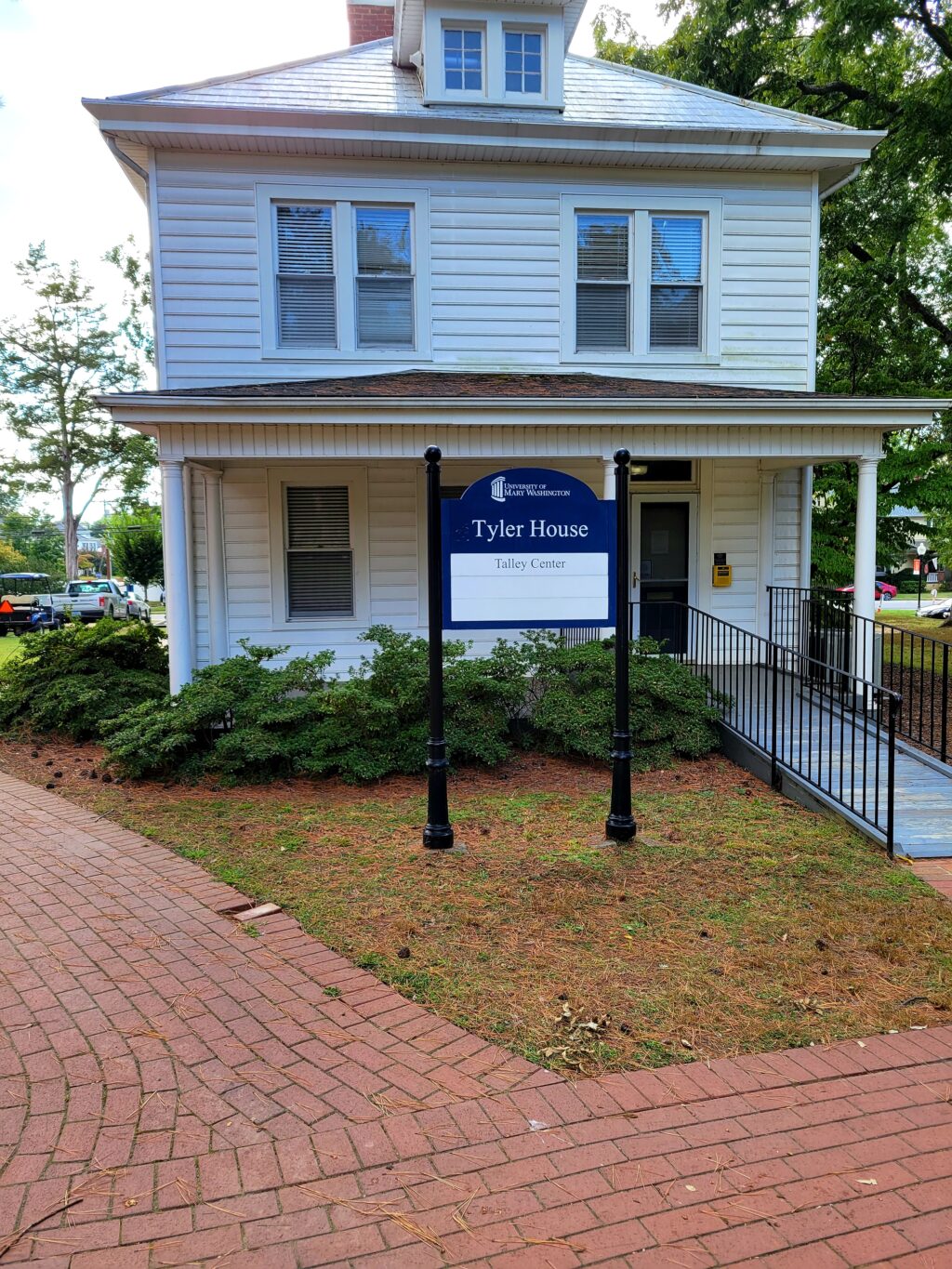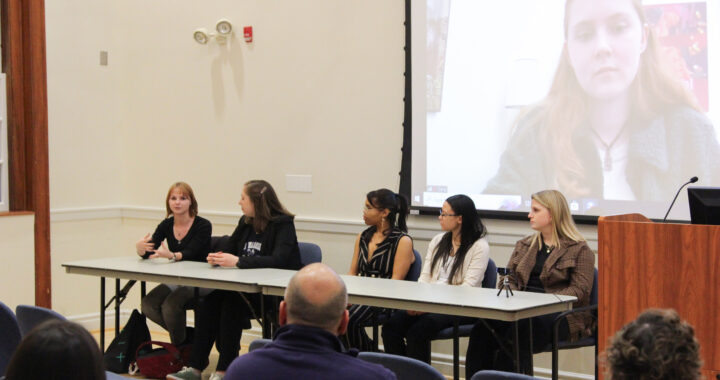University hopes to implement 24-hour call service for crisis response
4 min read
The Talley Center can only respond to calls during their hours of operation. | Kenya Carter/The Blue & Gray Press
Aria Janello
Staff Writer
Over the summer, the Mental Health Crisis Response Working Group, composed of Student Affairs employees, Talley Center employees, students and UMW police, recommended that the University of Mary Washington implement a 24-hour call center for mental health emergencies.
According to the Mental Health Crisis Response Working Group’s recommendations, with the addition of a 24/7 call center, “students experiencing mental health situations after-hours or over the weekend would have an opportunity to speak with a trained clinician to ensure the best outcome.”
The Working Group examined data from crisis calls that were made from 2016-2021 during mental health emergencies. These calls were received from residence halls and involved the campus police.
Out of 27 total crisis calls that involved the campus police, 21 of them were received after 5 p.m., one hour after the Talley Center call center closes.
Dr. Juliette Landphair, vice president of student affairs, explained how the call service will be implemented if approved.
“The recommendation is now among several strategic priorities for President Paino and the Cabinet to consider,” she said. “If the recommendation is approved, the Talley Center Director, Dr. Tev Zukor, Dean of Student Life Cedric Rucker and Assistant Dean for Residence Life Dave Fleming will work with the contracted provider to shape a program that best meets our needs.”
ProtoCall is the contracted provider recommended in all of the reports. The service works by partnering with universities and offering support, crisis intervention and referral to students and to campus officials if needed.
ProtoCall would issue a 24-hour call service that is used successfully at other public universities in Virginia, like James Madison University and William & Mary. This service would be used primarily for residential students, but off-campus students can use it as well.
Senior psychology and sociology double major Vivian Hyatt was a member of the Mental Health Crisis Response Working Group. She explained why ProtoCall interests her and how it may help other students.
“This service will provide help while a student can be in a comfortable environment, in their own room without having to talk face-to-face, making the whole situation less anxiety provoking,” said Hyatt.
The Mental Health Crisis Response Working Group formed after an April 2021 recommendation from University President Troy Paino after the UMW Police Community Advisory Panel’s (CAP) final report in Mar. 2021.
A 24-hour call center for supporting mental health crises was one of five recommendations the Working Group made to restructure how student mental health situations are responded to on campus.
The Working Group identified main areas in which to improve the mental health crisis for the community. The most prominent of these is to provide students with 24/7 access to clinical evaluation and support, as well as to hire a case manager who would follow up with students who are referred to a mental health care provider off-campus.
Another recommendation was to list all of the training and procedures which campus police participate in, especially those which prepare them for mental health emergencies. Additional support and training for Resident Assistants, along with general mental health training for the entire community, are also under consideration.
“The CAP identified after-hours crisis response as an area that could be enhanced due to the recognition that some people struggle with serious mental health situations in the middle of the night, when traditional support services like the Talley Center are not open,” said Dr. Tevya Zukor, director of the Talley Center. “The CAP recognized that students having the ability to talk with a trained mental health professional while in the midst of a crisis is often preferable to having their situation evaluated by Residence Life professionals and campus police to determine whether a hospital psych evaluation is necessary.”
Currently, the only access that students experiencing a mental health crisis have to trained mental health professionals is the call center at the Talley Center. Through this service, students can make an appointment for phone, Zoom or in-person crisis intervention. This call center operates from 8 a.m. to 4 p.m., Monday through Friday.
“The times that the Talley Center is not open (at night) are often the times when students are more likely to need assistance,” said Hyatt.
Currently, when students have mental health emergencies after hours or on weekends, the UMW campus police are the ones to respond.
According to the final CAP report, students believe “Campus Police, as law enforcement professionals, are not adequately trained to respond to a mental health crisis (though all the officers have completed Crisis Intervention Team (CIT) training).”
Senior communication and digital studies major Summer Allen echoed the findings of the final report.
“I feel as if [campus police] are unreliable in those situations,” said Allen. “If I was having trouble, it wouldn’t cross my mind to call the police.”
Campus police also respond in full uniform, with service weapons.
The CAP report states that these two student concerns “may elevate the anxiety and fear of a student already in crisis.”
With the implementation of the 24-hour call center, the campus police would become a backup response.
Students experiencing mental health emergencies during the Talley Center’s business hours may still call them for assistance.
Jean Mondoro contributed to reporting for this article.











